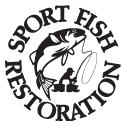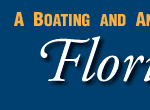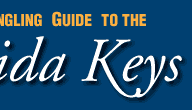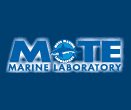CONTACT US:
Florida Fish and Wildlife
Conservation Commission
Fish and Wildlife
Research Institute
100 Eighth Avenue SE
St. Petersburg, Florida 33701
727-896-8626
|
|
|
Mote Marine Laboratory
Tropical Research Laboratory
24244 Overseas Hwy.
Summerland Key, FL 33042
305-745-2729
|
|
|

|
|
This project was funded in part by a grant awarded from Mote Marine Laboratory's Protect Our Reefs Grants Program, which is funded by proceeds from the sale of the Protect Our Reefs specialty license plate. Learn more at .
|

|
|
Additional funding for this project was obtained through the Federal Aid in Sport Fish Restoration Fund.
|
|
|
 |
In and around the Florida Keys, managed areas that provide recreational opportunities for both residents and visitors to the area. Boaters can visit several barrier islands and spend the day basking on the beach. anglers can wet a line in the hopes of catching a trophy trout, snook, or red drum.
These managed areas also provide a refuge for many plants and animals that call this area home. Many of the barrier islands serve as nesting and resting areas for birds. Seagrass beds and mangrove roots provide areas for many bird species to feed. Gopher tortoises and box turtles can be found in the upland areas of several state parks.
This section of the Web site highlights managed areas that provide boating and fishing opportunities to residents and visitors alike or protect habitat for the bay's plants and animals.
|
| |
State Parks and Preserves: Information for and links to state parks that provide opportunities for boating, fishing, or diving.
Aquatic Preserves: Information describing an aquatic preserve and a list of the aquatic preserves in the Keys
National Wildlife Refuges: A list of the National Wildlife Refuges in the Florida Keys
National Parks: Information about the National Parks that border the Florida Keys
Florida Keys National Marine Sanctuary: Information about the Florida Keys National Marine Sanctuary
|
|
If you are out snorkeling, diving, fishing, paddling, or boating and see anything that may be unusual or out of the ordinary (including lionfish) in the waters around the Keys , please record the location, date, and time, and contact the Marine Ecosystem Event Response and Assessment (MEERA) project. They can be reached by phone (305-395-8730), e-mail, or online.
If you have any questions, comments, or suggestions about this Web site, please e-mail us at Boating_Guides@MyFWC.com.
Would you like to receive notices of changes to this Web site and the Boating and Angling Guides to the Upper, Middle, or Lower Keys? If so, please e-mail us and include SUBSCRIBE-KEYS in the subject line.
|






















